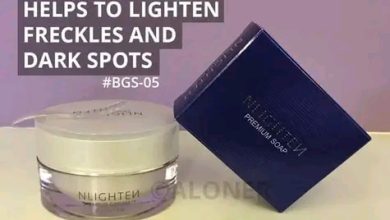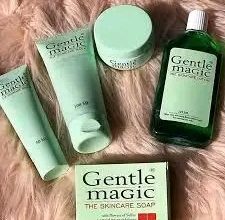The difference between natural and synthetic skincare ingredients
Skincare has been around for centuries, and the use of natural ingredients has been a part of this practice since the very beginning.
However, with advancements in science and technology, synthetic skincare ingredients have also become widely used in the industry.
It is important to understand the difference between natural and synthetic skincare ingredients to make informed decisions about the products we use on our skin.
♦ Natural Skincare Ingredients
Natural skincare ingredients are derived from plants, minerals or animals. These ingredients have been used for generations and are known for their healing and nourishing properties.
Natural ingredients are preferred by many, as they are perceived to be better for the skin and the environment.
Some commonly used natural skincare ingredients are:
• Aloe Vera – Aloe Vera is known for its anti-inflammatory and soothing properties, making it an excellent ingredient for those with sensitive or irritated skin.
• Coconut Oil – Coconut oil is rich in fatty acids and vitamin E, making it a great moisturizer for dry skin. It also has antimicrobial properties, making it useful in treating acne and other skin conditions.
• Honey – Honey is a natural humectant that can help hydrate and soothe the skin. It also has antimicrobial properties, making it useful in treating acne.
• Jojoba Oil – Jojoba oil is a natural oil that closely resembles the oil produced by our skin. This makes it an excellent moisturizer that won’t clog pores or leave a greasy residue.
• Green Tea Extract – Green tea extract is rich in antioxidants that protect the skin from damage caused by free radicals. It also has anti-inflammatory properties, making it useful in treating acne and reducing redness.
Natural skincare ingredients are often considered safer than synthetic ingredients, as they are less likely to cause irritation or allergic reactions.
They also tend to be more sustainable and eco-friendly, as they are often sourced from renewable resources.
♦ Synthetic Skincare Ingredients
Synthetic skincare ingredients are made in a laboratory, and they are often used to mimic the effects of natural ingredients.
They are created by combining various raw materials using chemical processes. Some commonly used synthetic skincare ingredients are:
• Parabens – Parabens are preservatives that are commonly used in skincare products. They have been linked to breast cancer, though research on this topic is controversial.
• Fragrances – Fragrances are often used to mask unpleasant smells in skincare products. They can contain a variety of synthetic chemicals that can cause irritation or allergic reactions.
• Silicones – Silicones are often used in skincare products to create a smooth, silky texture. While they can be effective, they can also clog pores and cause breakouts.
• Synthetic Colors – Synthetic colors are often used in skincare products to make them more visually appealing. However, they can cause irritation or allergic reactions in some people.
While synthetic skincare ingredients can be effective, they are often perceived as being less safe and eco-friendly than natural ingredients.
They also tend to be more heavily processed and may contain harmful chemicals.
♦ The Verdict
Both natural and synthetic skincare ingredients have their pros and cons. Ultimately, the choice between natural and synthetic ingredients comes down to personal preference and individual skin needs.
Some people may prefer to use all-natural products to avoid potential harmful effects of synthetic ingredients, while others may prefer synthetic formulations for their effectiveness.
It is important to do research before using any skincare product and to choose products that are suited to your individual skin type and concerns.
Paying attention to the ingredients in skincare products and avoiding products with potentially harmful chemicals can help us make informed decisions about what we put on our skin, and ultimately lead to healthier, more radiant skin.








